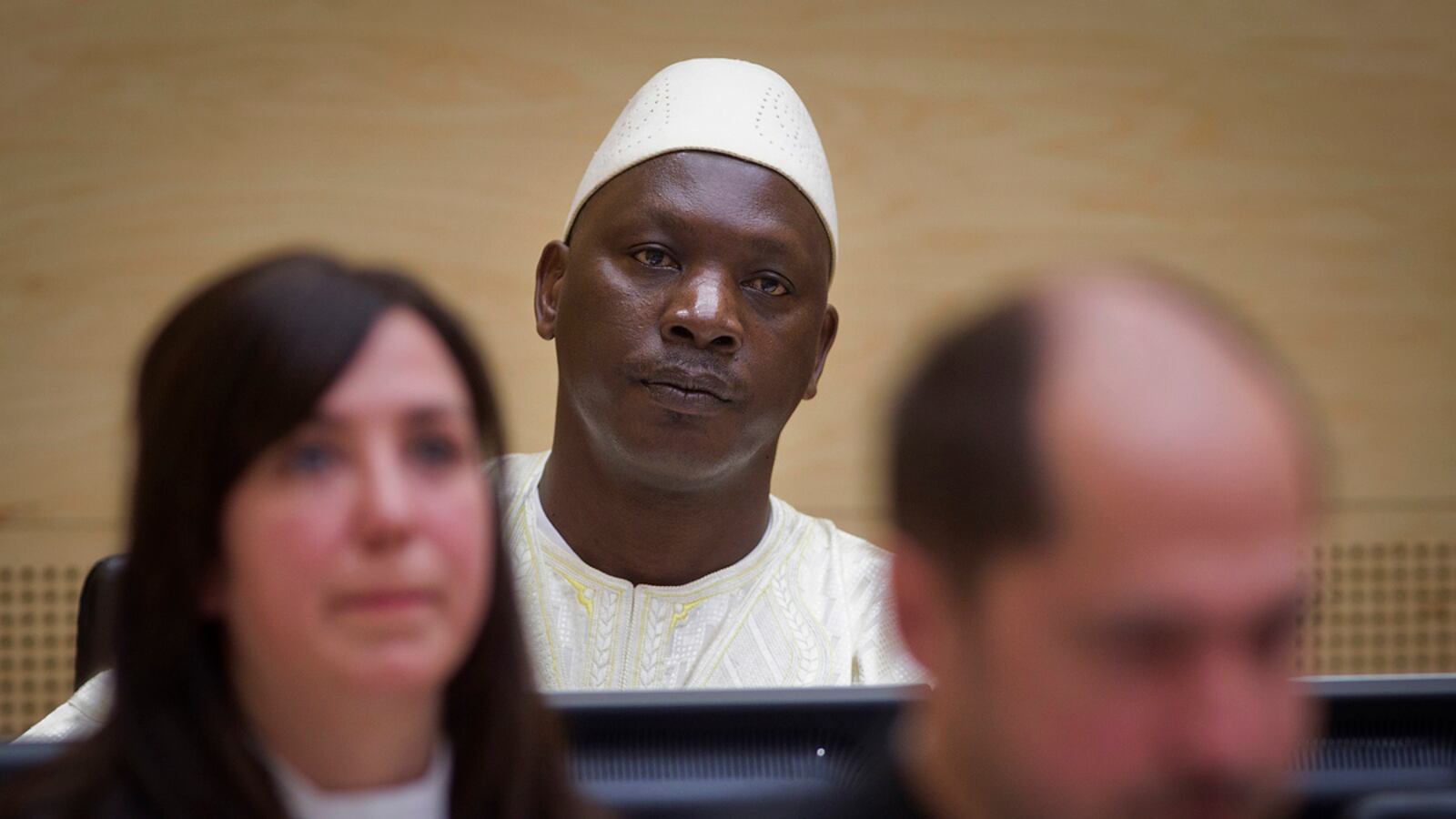After seven years of detention, including three on trial, Thomas Lubanga gained the dubious notoriety this week of becoming the first person to be convicted by the International Criminal Court in The Hague.
In a landmark decision for international justice, Lubanga was found guilty for his part in a plan to recruit children for his armed militia, the Union of Congolese Patriots, which fought in the Democratic Republic of the Congo in a lengthy battle for control of the gold-rich province of Ituri. The Ituri conflict was part of a series of massive interethnic and interstate wars that engulfed eight neighboring countries and involved up to 25 armed militias at different times between 1996 and 2008. In the end, more than 5 million people were killed, making it the deadliest conflict since the Second World War.
Particularly in light of the renewed focus on Ugandan warlord Joseph Kony (himself wanted by the ICC for years), the conviction of another man who deliberately used young children in a bloody war ought to be an occasion for celebration and a reflection on his cruelty. Instead, the judgment has opened a litany of questions about the charges, the length of the trial, and the performance of the prosecution.
While it is an undeniably important event, the historic judgment was not an unqualified success. The four years Lubanga spent in pretrial detention and the fact that his trial—on very limited charges—lasted three years do not merely raise procedural concerns; they scream them out. In Wednesday’s 600-page judgment, which revealed a complicated drama in which the central characters were frequently the lawyers themselves, the three-judge panel indicated that much of the blame lay with the prosecution.

In a number of critical comments, the judges asserted that prosecutors acted negligently, costing the court considerable time and expense.
The court was particularly bothered by the use of agents, known as “intermediaries,” to obtain witnesses and, in some cases, evidence. The judges found that the prosecution had failed to exercise necessary supervision over these people, and threw out all evidence that came from them. The judges have ordered an investigation into whether the agents may have acted criminally in the way they encouraged (or forced) witnesses to act.
The court also criticized the quality of the investigation and the charges brought by the prosecutors. For reasons few can understand—including the judges themselves—the prosecution opposed charging Lubanga in connection with the sexual abuse of children, even though there appeared to be supporting facts that came out in the trial.
To be sure, not all the problems were of the prosecution’s making. Unlike the investigation of Kony and his Lord’s Resistance Army, in this case the investigators could not rely on the assistance of an extraordinarily helpful government (in that case, Uganda). The court’s ruling shows just how complicated it is to investigate the issues of child soldiers in a context where official documents to prove the age of children were rare, and where loyalties and honesty were commodities in a gruesome war.
Further, no one can doubt that the judges have been scrupulously fair; to the contrary, few prosecutors have had to work harder for a conviction. Still, it is unclear just what impact the court’s decision will have on the ordinary lives of the victims who suffered as children, and who are now adults living in poverty. Many of them hope to benefit from the court’s capacity to order reparation payments—a unique power in the history of international criminal justice. But the Democratic Republic of the Congo continues to endure conflict, poverty, weak government, and tension over mineral resources. The length of time it has taken to deliver justice in the Lubanga case inevitably weighs against the impact of the decision.
For the ICC to continue to be a success, investigations and prosecutions must be conducted more efficiently and in a way that commands credibility among both victims and the broader international community. When the quality of proceedings has become a more important issue than the vindication of victims’ rights, all is not well.
Whatever the doubts about efficiency, the first judgment of the ICC offers practical protection to children around the world caught up in the horrors of war. That is a meaningful start. It would be encouraging if the court, including the prosecution, confirmed that it saw the Lubanga conviction as an opportunity to learn and improve procedures, as well as to celebrate a historic day in international justice.






